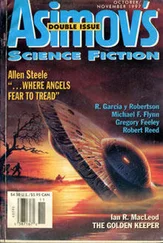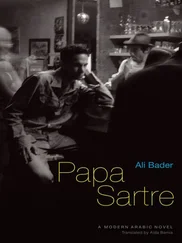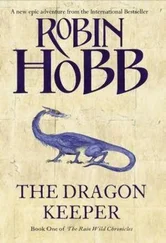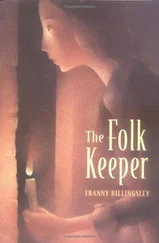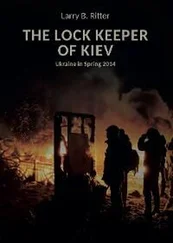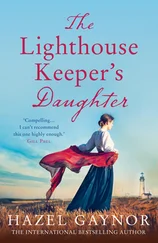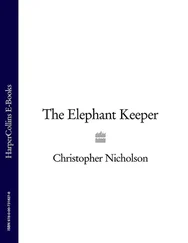In the morning, he opened his eyes slowly and felt his face. He looked to his right and found Nadia sleeping next to him. Still drowsy with sleep, he smelt a delightful fragrance emanating from her.
He got out of bed. Looking around the bedroom, he realized it was awful and a complete mess. On the floral wallpaper were family photographs and a painting of white horses. Magazines were scattered on the table and there was clutter everywhere. The decoration was primitive and artificial.
That morning, Kamal Medhat looked at the garden. A pomegranate tree was covered with a delicate film of water, which made it gleam and shimmer. From the closed window of the room, winter glowed in the morning light and the green garden was wet with the rain. Everything sparkled and shone. He felt that he was where he had always wanted to be. Trembling with exultation, he felt his heart pound as he stood behind the window. He was once again a child looking at a tree spreading its shade over a plot of roses and at the rooster swinging its long, red tail in the air. His homecoming was pure bliss.
So what was the cause of his elation?
Years later, he wrote to Farida: ‘Simple-minded patriotism has never been one of my traits. In fact, I loathed patriotic feelings because they were the source of all fanaticism and hatred. But I felt like a rain bird coming back through the rain. I had to return on a cold, rainy day filled with thunder and lightning. When I think of this, I feel my heart fluttering and thumping like a great squirrel.’
He left the house in the evening and took the bus to Al-Saadoun Street. As he passed in front of the door of the Semiramis Cinema, he stopped briefly to read the declarations of war pasted beside posters of semi-naked actresses basking in the summer sun on a European beach. At that time, he became a regular visitor to a bar at the corner of the street. He went there almost every week, sitting alone and speaking to no one. He would watch the clusters of coloured lights coming from the music shops. He saw women standing in the rain at cinema box-offices. He smelt hamburgers coming from a nearby shop and the wet stones of Baghdad’s streets on a rainy evening. He’d be happy walking in his heavy coat, black gloves and grey scarf. He entered a music shop and bought a medium-quality violin. At that particular moment, he realized how much he loved this part of Al-Saadoun Street in winter. So he stopped some distance from the Al-Nasr Square buses, took a cigarette out of the packet and lit it in the cold, damp air. He blew out the smoke and looked straight ahead at the street. He walked on until he reached the tunnel leading to the eastern gate. There he discovered a very different city. He was appalled by the posters for the war effort. Deep in his heart, he felt that the longer the war continued the more barbaric and deadly it would become.
Baghdad, unlike Damascus and Tehran, was a cosmopolitan city. There were foreigners almost everywhere and women went about the streets dressed in modern clothes until the small hours. There was a bar on almost every corner of Al-Saadoun Street; even shawerma restaurants served draught beer with sandwiches. The cinemas showed the latest movies, and the walls displayed posters for concerts like any modern metropolis. Plays and operas from around the world were performed at the most prestigious theatres in the Middle East. But Kamal Medhat sensed that behind the modern, civilized veneer of the city lurked flagrant examples of decay and death. He sensed that the soul of the old city was fretting and moaning because its powerful imagination was being bridled and suppressed by the political rhetoric of tyranny.
When he got home, he found Nadia sitting embroidering a dress for the baby she was expecting. He placed the stand near the large window overlooking the garden and began to play. That day, he wanted to regain his skill and recover his technique through various exercises on the violin. He soon found himself responding emotionally to the instrument, swaying as he used to do in the past. His heart thumped with pure joy as though he were under the influence of opium.
The Opium Concerto was the piece he’d composed on his return from Tehran in the late fifties. It was his most beautiful creation, but it had been confiscated together with his books and documents after his expulsion to Tehran. What if it was resurrected once again? He tried to recall the basic melody and introduce new variations. This was what he told Farida in one of his letters. But it’s clear that he went back to his old habit of watching trees and flowers as a way of feeling the music of the universe.
Kamal Medhat played the music as he looked at the garden. He saw the trees with their huge trunks and their long branches towering tall and magnificent. The lush green colour emphasized the will to life, while wars emphasized the wills of their individual perpetrators. Wars were the conflict of different wills, embodying destruction and death. That night Kamal could not sleep. His soul was ablaze with the violin and he felt happy and fulfilled. He wanted to take a long walk in the rain, so he went out in his raincoat and strolled along Baghdad’s wet streets. He sat on a bench in Al-Zawraa Park, his back turned to the cars and the buildings. He sat under the pouring rain the whole night, until his shoes became soaking wet. When the sun came up, he wandered a little in the park till he reached Al-Mansour Street, where he stopped in front of a man selling tea. The man had a large white moustache whose ends were yellowish from smoking. Kamal ordered a cup of cardamom tea and began to take one sip after another.
After a break from music of nearly three years he went gradually back to practising and playing.
Through practice his fingers, which had become rigid and stiff, began to grow supple, light and flexible. What was he going to do now? He was back in Baghdad, but what was he going to do? During this period his wife Nadia gave birth to a son, Omar. But like most artists, Kamal felt that children were of no great importance to him. The questions of art and work continued to plague him, until he was introduced to a Russian pianist, Maria Ivanova, who played in the large hall of the Sheraton Hotel. He began to accompany her on the violin at this place that was more of a café than a concert hall. The customers talked, drank and laughed as Kamal Medhat stood tall in his black suit and long hair, playing music and accompanied by the twenty-year old Ivanova, who wore a long dress with a slit that reached up to the thigh.
Kamal stood in front of Maria Ivanova as she bent over the piano and played. He stood tall, with his dark face and light, greying beard inclining as he slid his bow over the strings. He was much happier with the music than he was at being in a hall full of chattering people.
One day, a couple were sitting in the corner, listening to the music of this astonishing violinist who swayed with his violin like an accomplished dancer. This tall man with the greying beard and hair was no ordinary musician, for he never kept still while he played. He plucked the strings with tremendous force, moving his bow and turning this way and that. He leaned forward and produced exquisite, plaintive sounds amidst the noise of people drinking and laughing. The Russian pianist worked hard to keep up with this skilful violinist who swayed from side to side and produced such beautiful and technically accomplished music.
The young couple got up and came towards him.
‘Who are you?’ the young man asked in surprise.
A trembling Kamal Medhat stood stock still. His heart fluttered like a little squirrel within his chest. He felt that somebody had discovered his identity and wanted to arrest him. He realized his mistake in expressing himself through music, for his skilfulness might betray him. His talent, if discovered, would lead people to ask who he was. But it was music that tempted him to display his skills in front of Maria Ivanova.
Читать дальше

